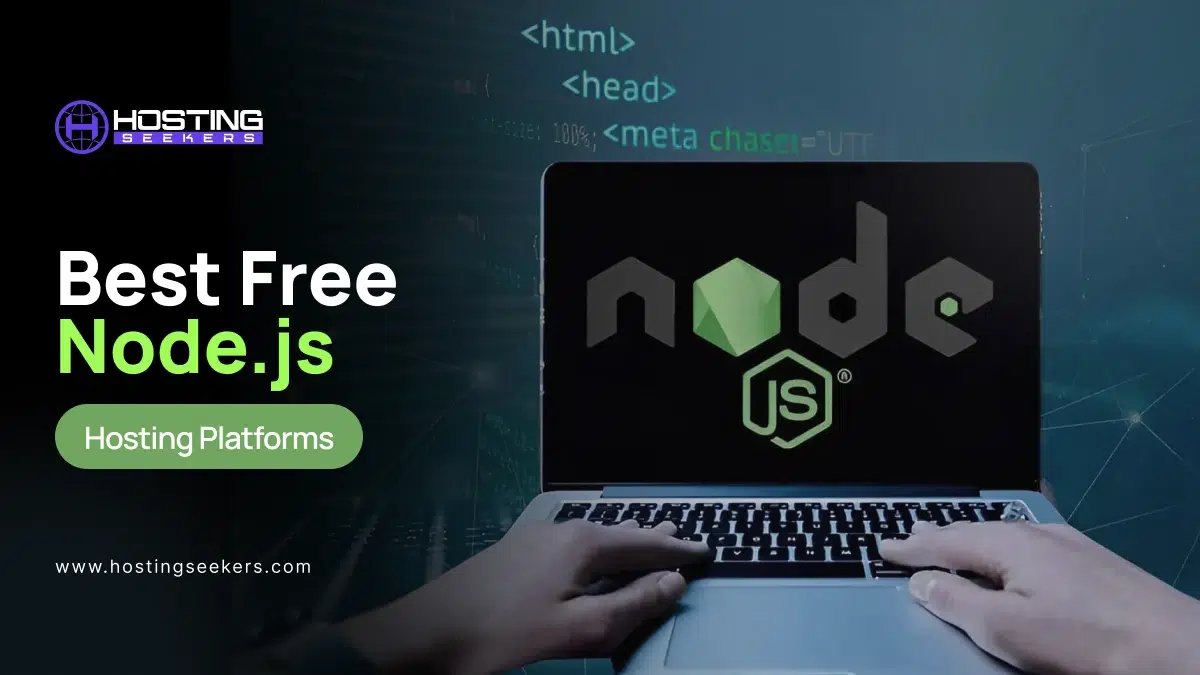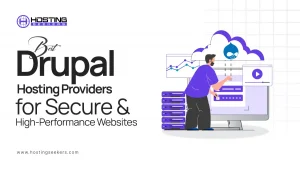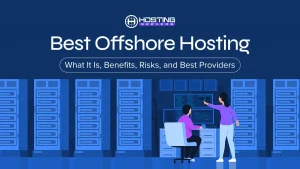
Best Free Node.js Hosting Platforms for 2026
Web Hosting Tips Updated on : December 31, 2025Node.js has emerged as a powerful platform for building scalable and real-time applications. Whether you are developing chat apps, online games, or collaborative tools, choosing the right hosting service is crucial for performance and reliability. In this guide, we explore the best free Node.js hosting platforms for 2026, highlighting their features, strengths, and limitations. Whether you are a beginner or an experienced developer, this overview will help you find a hosting solution tailored to your needs, enabling seamless deployment and growth.
What is Node.js Hosting?
Node.js hosting refers to the services that allow developers to deploy and run their Node.js applications on a server. Node.js is a JavaScript runtime built on Chrome’s V8 engine, designed for building scalable network applications. Unlike traditional hosting, which may be optimized for static websites, Node.js hosting is specifically tailored for applications that require asynchronous processing and real-time capabilities. This makes it ideal for applications such as chat applications, online gaming, and collaborative tools.
What are the Key Criteria for Choosing a Free Node.js Hosting Platform?
When selecting a free Node.js hosting provider, consider the following key criteria:
1. Performance: Look for platforms that offer good uptime and fast response times. Performance is crucial for user experience, especially for applications that require real-time interactions.
2. Ease of Use: A user-friendly interface and straightforward deployment process are essential. The platform should allow you to deploy your applications with minimal hassle.
3. Support for Node.js Versions: Ensure that the hosting provider supports the latest versions of Node.js. This is important for accessing new features and security updates.
4. Limitations: Be aware of any bandwidth, storage, or application size restrictions. Free tiers often have limitations that may affect your application’s performance and scalability.
5. Community and Documentation: A strong community and comprehensive documentation can be invaluable. They provide support and resources to help you troubleshoot issues and optimize your application.
Top Free Node.js Hosting Providers (2026 Edition)
1. Kamatera
Kamatera offers high-performance Node.js hosting on its cloud platform, which is ideal for applications requiring scalability and reliability. Here’s a summary of their Node.js hosting solution:
Key Features:
- Ideal Use Cases: Suited for REST and GraphQL APIs, real-time applications, chat systems, microservices, full-stack JavaScript applications, and serverless functions.
- Scalability: Easily adjust CPU, RAM, and storage resources to handle fluctuating traffic.
- Customizable Servers: Offers a price calculator to customize your Node.js app version with options for:
- Operating Systems: A Wide selection of operating systems, including various Linux distributions and Windows Server versions.
- Add-ons: Options for cPanel, Plesk, Microsoft SQL Server, and managed services.
- Free Trial: Kamatera provides a 30-day free trial.
- Type: Availability, General Purpose, Burstable, and Dedicated server types.
- vCPU: Up to 104 vCPUs (based on Intel Xeon Platinum/Cascade Lake, 2.7GHz+ processors).
- Data Center: Numerous locations across Asia, Australia, Europe, the Middle East, and North America.
- Operating System: A Variety of Linux and Windows Server versions.
- Operating System Add-ons: cPanel, Plesk, Microsoft SQL Server, and Microsoft Remote Desktop options.
- RAM: Up to 512 GB
- SSD Storage: Up to 4000 GB
- Public IPs: Select the number of static WAN/public internet IP addresses.
- Internet Traffic: Options for unmetered bandwidth or specific monthly data allowances.
Pricing
| Plans | Price |
| Node Js Hosting | Custom |
2. Hostinger
Hostinger provides VPS hosting specifically designed for Node.js applications, emphasizing ease of use and affordability. Here’s a summary of Hostinger’s Node.js VPS hosting:
Key Features:
- Target Use: Ideal for building scalable applications using JavaScript.
- Pricing: Plans start from ₹ 399.00/mo (with discounts up to 71% off) and a 30-day money-back guarantee.
- Resources:
- OS: Linux operating systems
- Freebies: Free automatic weekly backups, malware scanner, and Kodee AI assistant.
- Setup: Effortless setup with pre-installed Ubuntu 22.04 64bit, Node.js, and OpenLiteSpeed.
- Network: 300 Mb/s network speed.
- Scaling: Easy scaling of CPU, RAM, and storage without downtime.
- Data Centers: Servers available in India, Europe, North America, and South America.
- vCPU: 1 to 8 cores
- RAM: 4 GB to 32 GB
- NVMe Disk Space: 50 GB to 400 GB
- Bandwidth: 4 TB to 32 TB
Pricing
| Plan | Price |
| KVM 1 | $ 4.99/month |
| KVM 2 | $ 6.99/month |
| KVM 4 | $ 9.99/month |
| KVM 8 | $ 19.99/month |
3. Vercel
Vercel allows you to create serverless functions using Node.js. These functions are suitable for computationally intensive tasks or functions with larger bundle sizes (up to 250 MB). The Node.js runtime offers complete compatibility with Node.js APIs.
Key Features:
- Node.js Compatibility: Full access to Node.js APIs.
- TypeScript Support: You can use .ts files, and configure the TypeScript compiler with a tsconfig.json file (most options supported, except “Path Mappings” and “Project References”).
- Request and Response Objects: Node.js’ Standard HTTP Request and Response objects from Node.js are available.
- Helpers: Vercel provides helper methods within the Request and Response objects for easier access to query parameters, cookies, and request bodies.
- Middleware: The Node.js runtime can be used with middleware.
Deployment:
- Create a file inside the /api directory using your function.
- Use the Web signature or a standard Node.js Request and Response handler.
Request Body Parsing:
- Vercel automatically parses the request body based on the Content-Type header:
Cancellation Detection:
- You can detect request cancellations by listening to the request object’s error event. Ensure you explicitly end the response if a request is cancelled to prevent timeouts.
- application/json: Parsed as a JSON object.
- application/x-www-form-urlencoded: Parsed as a URL-encoded object.
- text/plain: A string containing the text.
- application/octet-stream: A Buffer containing the data.
Pricing
| Plans | Price |
| Hobby | Free |
| Pro | $ 20/month |
| Enterprise | Custom pricing |
4. DigitalOcean
DigitalOcean provides multiple options for deploying Node.js applications, catering to different needs and levels of control.
Hosting Options:
- Droplets are Linux-based virtual machines that offer full control over infrastructure setup. They are available in various configurations (shared CPU, dedicated CPU, memory-optimized, storage-optimized, and CPU-optimized) and can be scaled vertically and horizontally. Droplets start at $4/month.
- App Platform: A fully-managed Platform as a Service (PaaS) that simplifies building, scaling, and deploying applications. DigitalOcean manages the infrastructure, app runtime, and dependencies. It supports Node.js out of the box. Pricing for dynamic Node.js apps starts at $5/month.
- Marketplace: Offers a 1-Click Node.js application that pre-configures a Droplet with Node.js, NPM, Nginx, and PM2. Droplets start at $4/month.
Key Features of DigitalOcean:
- Simplicity: Easy-to-use UI, CLI, API, and documentation.
- Predictable Pricing: Transparent and consistent pricing, even when scaling.
- Product Suite: A comprehensive portfolio of compute, storage, database, and networking products.
- Supportive Community: Access to a vibrant developer community for learning and support.
Ideal Use Cases for Node.js:
- I/O-intensive tasks
- Real-time applications (live chats, streaming)
- IoT applications
- Web applications
Not Recommended For:
- CPU-intensive applications (video processing)
Pricing
| Plan | Price |
| GenAI platforms | $ 0.198/month |
| Droplets | $ 4/month |
| GPU droplets | $1.99/GPU/hour |
5. InMotion
InMotion Hosting highlights Node.js as a popular server-side JavaScript framework built on the V8 JavaScript engine. It uses event-driven, asynchronous I/O requests, allowing efficient handling of many concurrent client connections. Node.js includes a server network library with built-in HTTP communication methods, enabling the creation of web servers without external software like Apache. It allows for full-stack JavaScript development.
Key Features:
- Asynchronous, Event-Driven Architecture: Handles concurrent connections efficiently, using minimal memory per connection.
- Minimal File Locking: Avoids deadlocks on server resources due to its handling of input/output operations.
- Full-Stack JavaScript: Enables both client-side and server-side development in JavaScript.
Ideal Use Cases:
- Application servers
- Clients of web services (e.g., Facebook or Twitter clients)
- Log and log monitoring
- Web-based software
Pricing
| Hosting type | Price (starting from) |
| Shared Hosting | $ 2.24/month |
| cPanel Hosting | $2.62/month |
| VPS Hosting | $ 4.49/month |
| Dedicated Hosting | $ 35.00/month |
6. Heroku
Heroku is a platform-as-a-service (PaaS) that allows you to deploy, manage, and scale Node.js applications in the cloud. It provides a managed container system, a developer-friendly experience, and support for various languages.
Key Features:
- Simple Deployment: Push your source code, and Heroku prepares it for execution in a dyno (a smart container with a secure, curated Node.js stack). Node.js is automatically detected.
- Easy Management: Manage your Node.js applications using a simple dashboard. Metrics provide insights into CPU, memory, and disk space.
- Horizontal Scalability: Heroku simplifies horizontal scalability, which is essential for Node.js applications due to the single-threaded EventLoop in V8.
- GitHub Integration: First-class GitHub integration for streamlined workflows.
- Add-ons: Extend functionality with add-ons like MongoDB, Postgres, and Redis.
- Rollbacks: Easily roll back to a binary copy of your app if a deployment breaks production.
- Automatic Routing: Heroku configures routes and distributes HTTP traffic, including WebSocket traffic, so you can focus on writing code.
Heroku’s Node.js support is designed to simplify the deployment and management of Node.js applications, allowing developers to focus on building features rather than managing infrastructure.
Pricing
| Plan | Price (starting from) |
| Eco | $ 5/month |
| Standard | max of $25 to $50/month |
| Private | max of $25 to $2400/month |
| Shield | max of $150 to $1800/month |
8. Hosting.com
Hosting.com offers premium, high-performance Node.js hosting designed for developers, startups, and businesses needing robust JavaScript server-side capabilities. While many hosts offer Node.js on VPS, Hosting.com optimizes its web hosting servers for Node.js, providing easy setup through cPanel or the command line. Turbo Servers offer even faster performance.
Key Features:
- Ultra-Fast Load Times: NVMe SSD storage for optimal performance.
- Developer-Friendly Tools: SSH access and Git integration for streamlined development workflows.
- Automatic Backups: Ensuring data security and easy recovery.
- Scalable Solutions: Resources can be adjusted to meet changing demands.
- Free White-Glove Migrations: Expert assistance in transferring existing Node.js applications.
- 99.9% Uptime Commitment: Reliable hosting infrastructure.
- 24/7/365 In-House Support: Round-the-clock assistance from knowledgeable professionals.
- Easy Setup: Simplified deployment through cPanel or command line.
Pricing
| Plan | Price |
| Professional Email | $ 1.99/month |
| Reliable Web Hosting | $ 1.99/month |
| Fast Hosting for WordPress | $ 2.99/month |
| Ultrafast VPS | $ 4.99/month |
Free Node.js Hosting Plan Comparison Table
| Provider | Free Plan/Trial | Starting Price (Paid Plans) | Key Features | Ideal Use Cases |
| Kamatera | 30-day free trial | Custom pricing | High-performance cloud hosting, customizable servers (up to 104 vCPUs, 512GB RAM), multiple OS options, global data centers | REST/GraphQL APIs, real-time apps, microservices, serverless |
| Hostinger | No free plan (30-day money-back guarantee) | $4.99/month (KVM 1) | Pre-installed Node.js, Ubuntu, OpenLiteSpeed, free backups, and an AI assistant | Scalable JS apps, small to medium projects |
| Vercel | Free (Hobby plan) | $20/month (Pro) | Serverless Node.js, TypeScript support, auto-parsing, middleware, API routes | Serverless functions, APIs, frontend+backend JS |
| DigitalOcean | No free plan (free credits for new users) | $4/month (Droplets) | 1-Click Node.js, managed App Platform, simple UI/CLI, strong community | I/O-intensive, real-time apps, IoT |
| InMotion | No free plan | $2.24/month (Shared) | Full-stack JS, async I/O, minimal file locking, cPanel/Plesk options | Web apps, API servers, log monitoring |
| Heroku | Free tier (Eco dyno) | $5/month (Eco) | Easy Git deployment, add-ons (DBs, Redis), metrics, auto-routing | Small projects, prototypes, APIs |
| Hosting.com | No free plan | $1.99/month (Web Hosting) | NVMe SSD, Git/SSH, auto-backups, white-glove migrations | Devs/startups, high-performance apps |
When to Upgrade to Paid Hosting?
Upgrade to paid hosting plans when you:
- Want to exceed the free tier limitations.
- Need advanced features or better performance.
- Require dedicated support or enhanced security.
- Growing applications need more resources.
Conclusion
Selecting the right free Node.js hosting platform depends on your project requirements, including performance, ease of use, and scalability. While free tiers offer an excellent opportunity to experiment and launch applications with minimal cost, upgrading to paid plans becomes essential as your application grows. By carefully evaluating these top providers, you can make an informed choice that ensures your Node.js application runs smoothly, securely, and efficiently in 2026 and beyond.
Frequently Asked Questions (FAQs)
Q1. Which is the best free Node.js hosting platform for beginners?
Ans. Vercel’s Hobby plan is a good starting point for beginners due to its ease of use and serverless deployment model. However, be mindful of its limitations. Hostinger, while not offering a free plan, provides an affordable entry point with pre-configured Node.js environments.
Q2. Can I host a production app on free Node.js hosting?
Ans. While technically possible with Vercel’s Hobby plan, it’s generally not recommended for production applications that require high reliability, performance, and scalability. The limitations of free tiers (bandwidth, storage, compute) can significantly impact user experience. Consider upgrading to a paid plan on Vercel, Kamatera, Hostinger, DigitalOcean, InMotion, Heroku, or Hosting.com as your application grows.
Q3. How do I deploy a Node.js app to Render or Railway?
Ans. Deployment to Vercel is typically done by connecting your Git repository (GitHub, GitLab, Bitbucket) to your Vercel account. Vercel automatically detects your Node.js project and builds/deploys it whenever you push changes to your repository. You can also deploy directly from the Vercel CLI.
Q4. What are the limitations of free Node.js hosting?
Ans. Common limitations of free Node.js hosting include:
- Limited Resources: Restrictions on CPU, RAM, storage, and bandwidth.
- Performance Throttling: Slower response times and potential downtime.
- Limited Support: Reduced or no dedicated support.
- Feature Restrictions: Access to advanced features may be limited.
- Usage Limits: Restrictions on the number of deployments, functions, or requests.
- No SLA: No guarantee of uptime or performance.
Q5. Can I use a custom domain with free Node.js hosting?
Ans. Vercel’s Hobby plan allows you to use a custom domain. Check the specific provider’s documentation for instructions on configuring your DNS settings.
Q6. Which Node.js host is best for real-time apps?
Ans. Kamatera, DigitalOcean, and Hostinger (VPS) are good options for real-time applications due to their scalability and control over server resources. Vercel can also handle real-time applications using serverless functions and WebSockets, but consider the limitations of the Hobby plan.
Q7. Are there free hosting services with built-in databases?
Ans. Vercel does not offer a built-in database. You will need to integrate with external database services like MongoDB Atlas or cloud-based SQL databases.
Q8. What happens when I exceed the free tier usage?
Ans. The consequences of exceeding free tier limits vary by provider:
- Vercel: You may be prompted to upgrade to a paid plan.
- General: Your application might experience performance degradation, temporary downtime, or be suspended until you upgrade.




